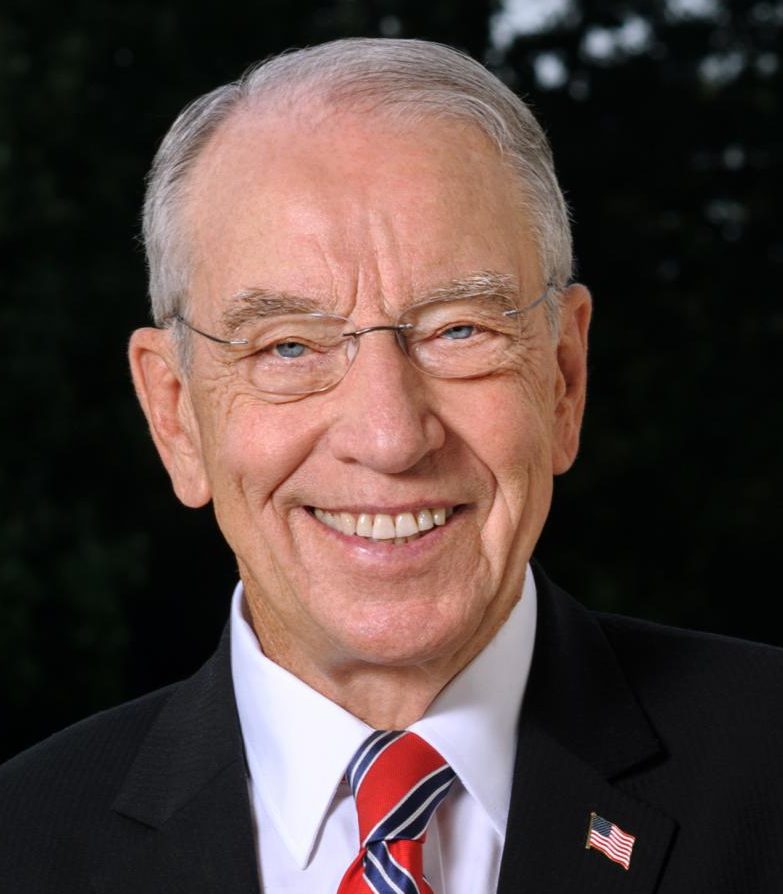Q: How will the CREATES Act help drive down prescription drug prices?
A: America’s free enterprise system has engineered technological and medical innovation like nowhere else on Earth. Consumers and patients benefit when competition drives the entrepreneurial spirit and pushes inventors, innovators and investors to take risks and create new products and cures. Millions of American families depend on pharmaceutical medicines to treat cancer, Multiple sclerosis, Parkinson’s disease, and Alzheimer’s disease, among so many others. Prescription drugs also provide life-saving treatments for tens of millions of Americans to manage diabetes and other chronic conditions, such as arthritis, high blood pressure or asthma. There’s no question America leads the way in breakthrough medicines and medical cures. There’s also no question that Americans are shouldering the financial burden to finance pharmaceutical research and development for the rest of the world. America’s system of free enterprise requires robust competition to deliver another big benefit of the free marketplace: lower prices for consumers. To ensure Americans continue to experience healthy outcomes and better quality of life from scientific advances, including next generation pharmaceuticals and biologics, public policy needs to address sticker shock at the pharmacy counter. Prescription drugs won’t do consumers a bit of good if they can’t afford to pay for them. Skipping doses to stretch out prescriptions put patient health and outcomes at risk. During my tenure as chairman of the Senate Judiciary Committee, I developed bipartisan legislation with Senator Leahy of Vermont to root out anti-competitive behaviors that some brand-name pharmaceutical and biologic companies are using to block or delay lower-cost generic drugs from reaching the marketplace. A few bad actors were exploiting the system by deploying anti-competitive tactics, such as restricting access to their samples to perform necessary testing to gain FDA approval or preventing them from participating in a shared safety protocol. Our legislation, Creating and Restoring Equal Access to Equivalent Samples Act (CREATES), enacts remedies to stop these anti-competitive behaviors. It allows generic drug manufacturers, who are blocked by Big Pharma, to file for injunctive relief in federal court. Our bill would save billions in federal spending and provide even more savings to consumers and private insurers. I’m glad to report the CREATES Act was included in the year-end legislative package passed by Congress in December.
Q: What else needs to be done to reduce drug prices in the United States?
A: Although I’m glad to get my bipartisan CREATES legislation across the finish line, Congress left unfinished business on its plate at the end of the year. The good news is I’ve set the table to take another bite at the apple in the New Year with a strategic legislative deadline baked into the process. Nothing seems to get done in Congress without the hammer of a deadline to nail lawmakers to act. The year-end spending package approved in December includes high priority health care measures that will expire in May 2020 without action by Congress. As chairman of the Senate Finance Committee, I’m working with ranking member Senator Wyden of Oregon to keep up the pressure and get our balanced, bipartisan reforms to the president’s desk. What’s more, President Trump supports our Prescription Drug Pricing Reduction Act. It would deliver meaningful savings for Americans at the pharmacy counter. For the first time ever, it would place a $3,100 annual cap for out-of-pocket drug costs for seniors and spread out payments for high-cost drug expenses. It would lower the amount beneficiaries have to pay for drugs before they hit this new out-of-pocket cap. In the New Year, I’ll also continue working with Senator Durbin of Illinois to shed sunlight on drug pricing. Our bipartisan legislation would require Big Pharma to include drug pricing information in their television advertising. Americans are bombarded by prescription drug advertising – an average of nine ads per day per consumer. Big Pharma spends big bucks to flood the airwaves with ads. Current law requires drug advertisers to share potential side effects, they ought to be required to tell consumers how much the advertised drug will cost. Price transparency would bring accountability by prompting Big Pharma to rethink their pricing strategies to help lower the lid on soaring drug prices. Finally, I’ve long supported legislative and administrative efforts that would allow for the re-importation of prescription drugs from Canada. I applaud the Trump administration for taking the necessary steps to make this available for American consumers. In December, the Department of Health and Human Services proposed a federal rule that mirrors bipartisan legislation I wrote with Senator Klobuchar of Minnesota to ensure imported drugs meet FDA safety standards and pose no risk to public health and safety. More drug pricing reforms on the menu in 2020 include another three bipartisan bills I’m working on to address anti-competitive practices, including abuses in the citizen petition process by brand drug companies; anti-consumer arrangements between brand and generic pharmaceutical companies that delay generics entry in the market and keep prescription drug prices high; as well as a directive to the Federal Trade Commission to examine recent merger activity and competition concerns in the pharmacy benefit manager (PBM) space. Make no mistake, I’ll keep dishing up legislative reforms in 2020 to reduce drug prices in the United States. Americans have no appetite for more excuses.
















